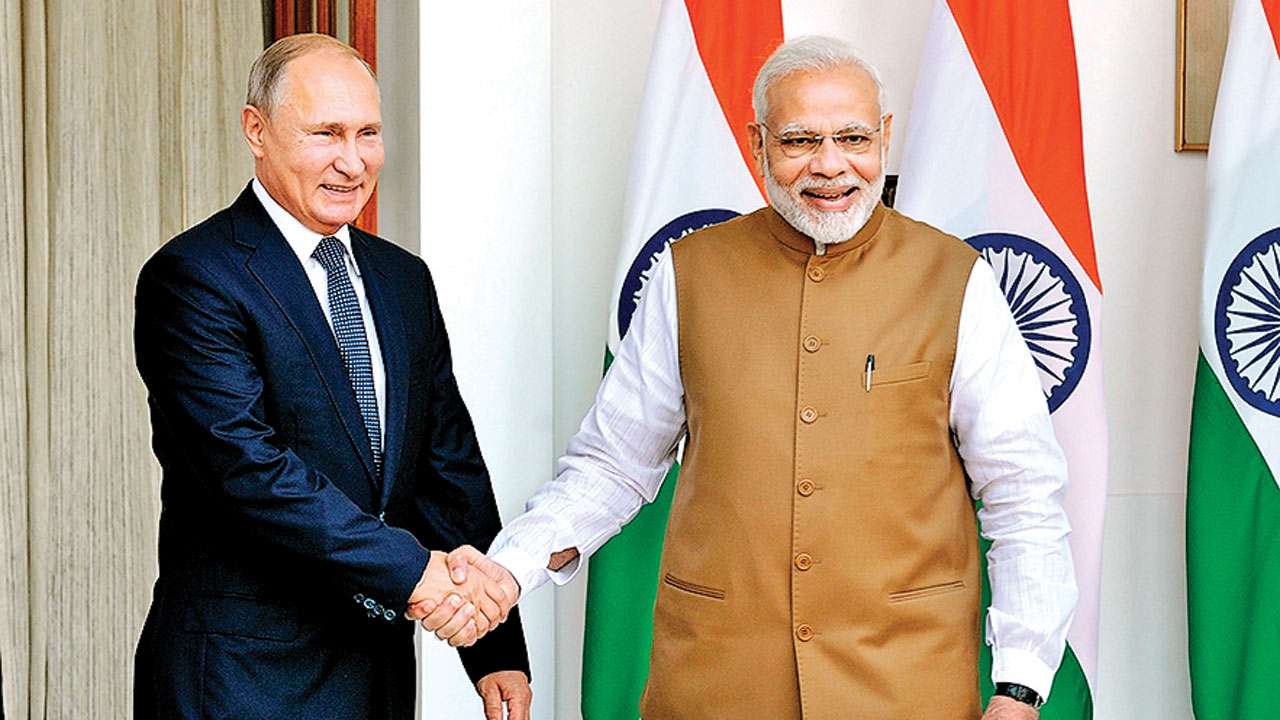
Prime Minister Narendra Modi will be on a two-day visit to Vladivostok on September 4-5 to attend the meeting of the Eastern Economic Forum as the chief guest.
The visit will provide an opportunity for PM Modi and President Vladimir Putin to hold the 20th annual bilateral summit at a time when the international political system has become unpredictable due to several factors, including the ongoing trade war between the US and China and the turbulent ties between Moscow and Washington.
Undoubtedly, Russia has been a time-tested friend of India, with the two sides having transformed their relationship into a strategic partnership.
Yet, in the past few years, the relationship between the two has seen some testing moments. The expanding India-US engagement, the strengthening Russia-China cooperation and also Moscow’s move to engage with Pakistan, have all proved to be hiccups.
However, before this relationship could further roll down the path, India and Russia began to take calibrated steps to address each other’s concerns in order to sustain and boost their time-tested engagement. The first step in this direction was the conclusion of the contract for the Indian purchase of Russian S-400 air defence missile system during Modi’s visit to Russia last year, sending a clear message about the importance that New Delhi accords to Moscow. On the other hand, by extending his full support to India on the abrogation of Article 370, President Putin has indicated Russia’s commitment to protecting India’s interests.
At the same time, in the fast-changing geostrategic and economic environment of the Indo-Pacific, cooperation across a wide spectrum of areas between India and Russia has become all the more compelling, as the two sides wish to see the emergence of a multi-polar order in the region.
Though India welcomed President Donald Trump’s concept of ‘Free and Open Indo-Pacific’, Modi in Singapore in 2018 made it very clear that the Quadrilateral Security Dialogue (QUAD) is not an exclusive club of the four countries, keeping the door open for others to join it.
For India, China’s assertive posturing against it on the border, Beijing efforts to strengthen its foothold in South Asia and the Indian Ocean and bolstering China-Pakistan ties are other factors to advance cooperation with Russia.
While it is true that the US factor has in the recent times cemented the China-Russia bond, Moscow is also closely watching Beijing’s increasing clout in the region and beyond. Consequently, Russia sees India as a natural friend in ensuring that China does not emerge as another hegemon in the Eurasian region. Moscow is also concerned about Beijing’s rising influence in Central Asia. India and Russia are expected to sign a defence logistics pact during Modi’s visit, which will enable the navies of the two countries to access each other’s ports and exclusive economic zones, among other facilities.
While the two sides share strong strategic and military interests, the economic dimension of the relationship is equally important. Bilateral trade between the two was recorded at $7.71 billion in 2016 and the two sides have a long way to go to realise the full potential in this area. Delhi and Moscow have set a target of $30 billion in bilateral trade by 2025.
In this connection, the Russian Far East Region, including Vladivostok, could prove to be instrumental in boosting economic ties, since this area is underdeveloped, but is blessed with huge natural resources.
This is why India and Russia are considering the possibility of a sea route between Chennai and Vladivostok. A delegation led by Minister of Railways and Commerce, Piyush Goyal, recently visited Vladivostok to explore business opportunities.
Modi and Putin are expected to discuss a proposal to establish a free trade zone between India and the Eurasian Economic Union (EAEU), a five-nation grouping, comprising Russia, Kazakhstan, Kyrgyzstan, Armenia and Belarus, formed in 2015 to create conditions for stable economic development of the member states. While India and Russia are members of the BRICS and SCO, Moscow’s support is very vital for India in the UN Security Council and other international organizations.
Author is Fellow, Maulana Abul Kalam Azad Institute of Asian Studies, Kolkata